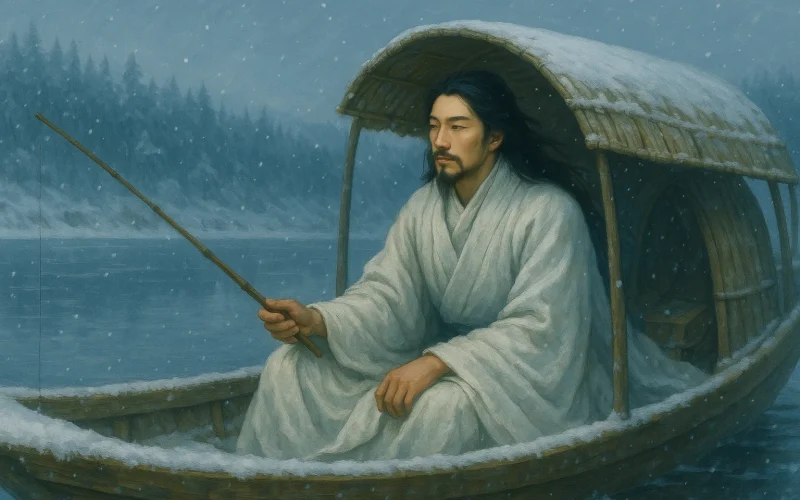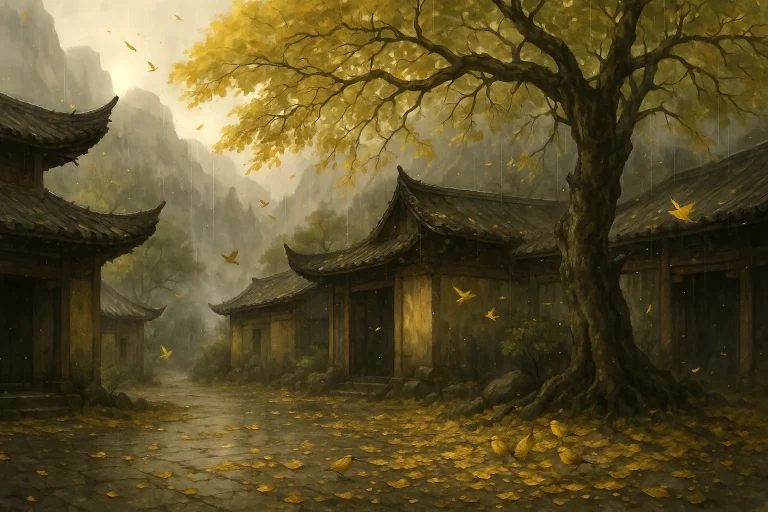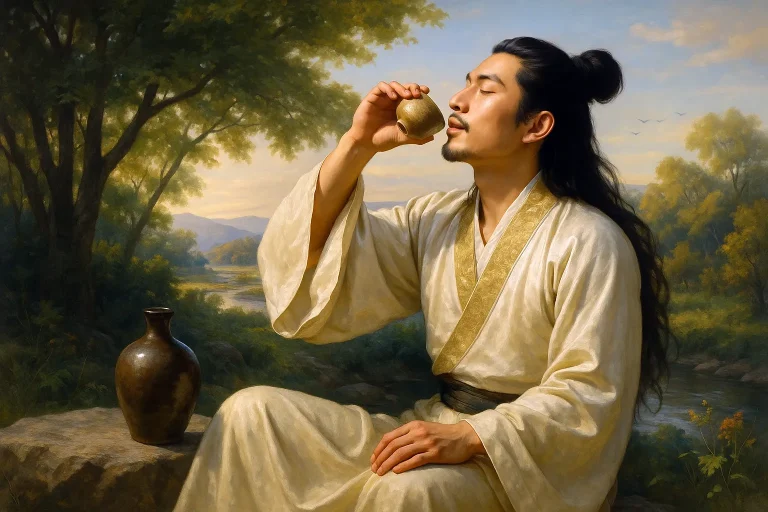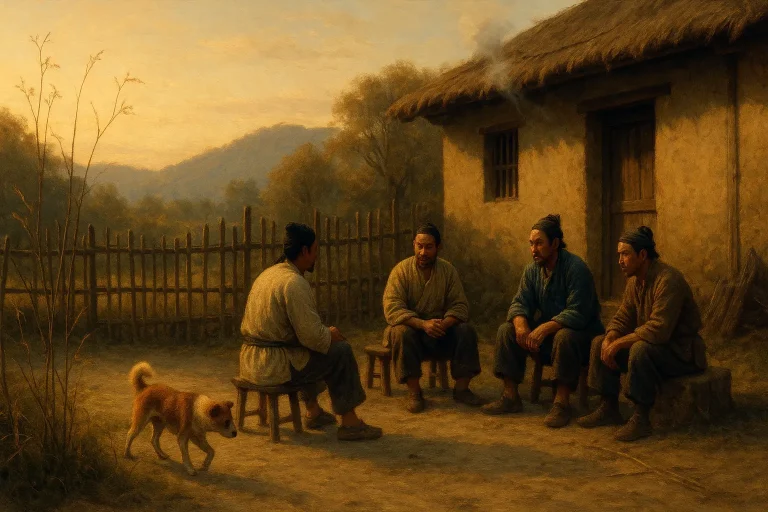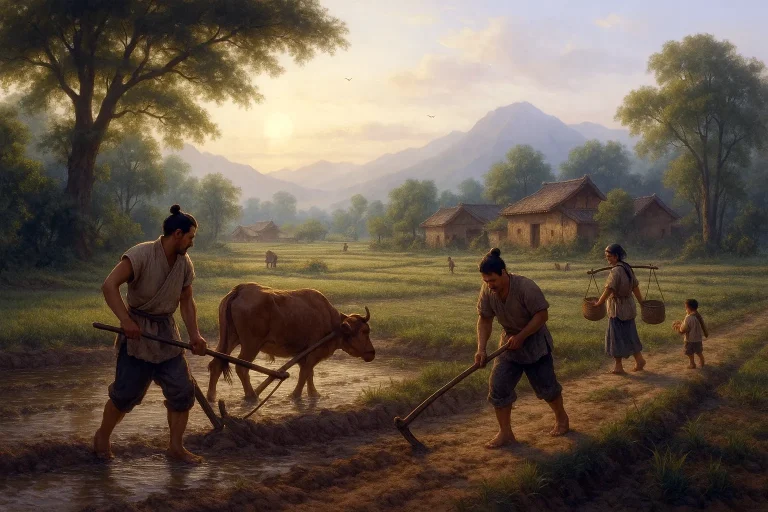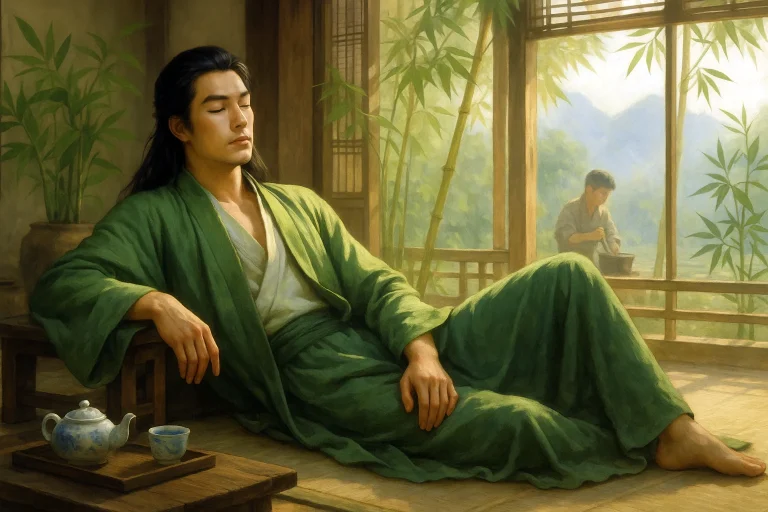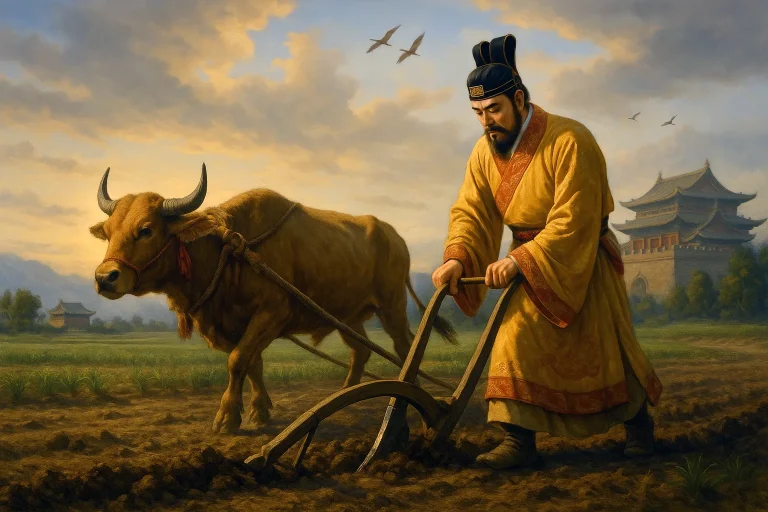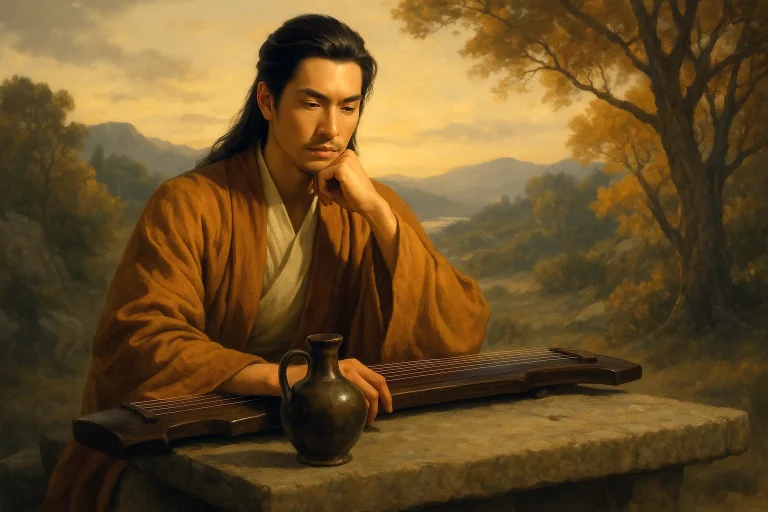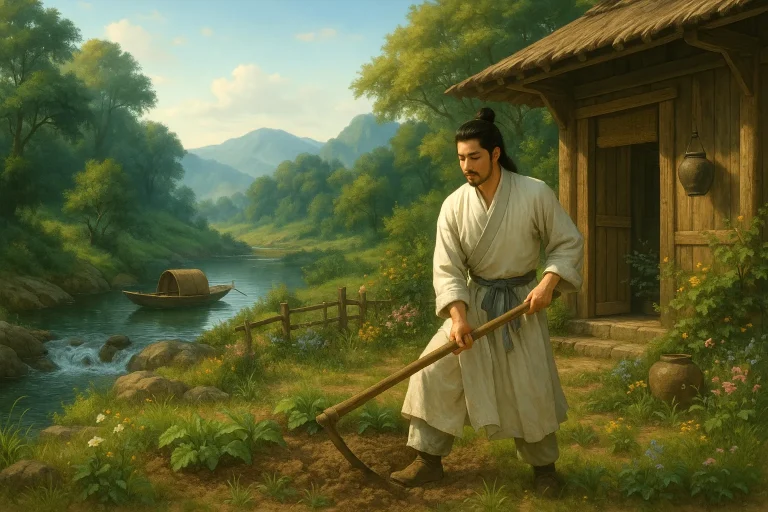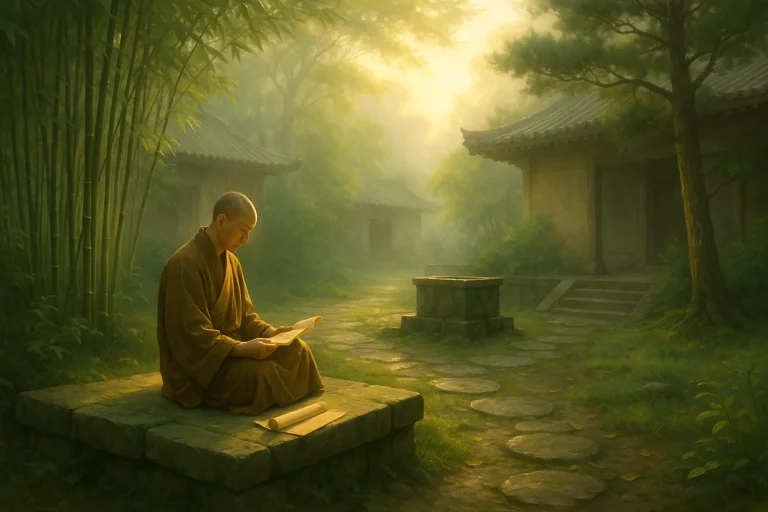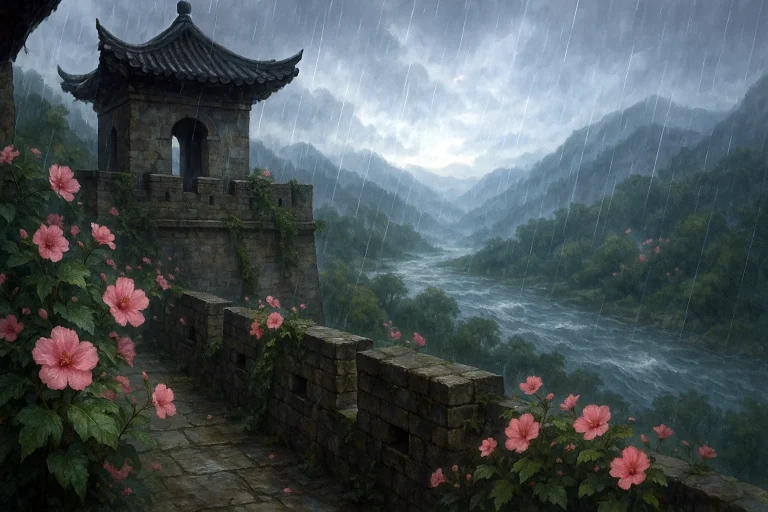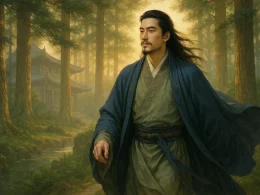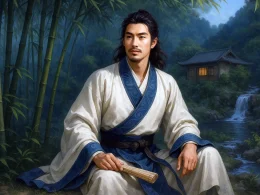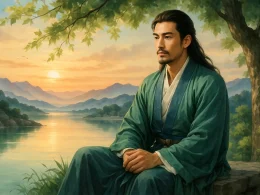Liu Zongyuan (柳宗元), 773-819 A.D., a native of Yongji, Shanxi, was a progressive thinker, brilliant writer, and revolutionary statesman of the Tang Dynasty. Nineteen years before he was born, the An Shi Rebellion broke out, which drastically changed the Tang Dynasty from prosperity to decline. The subsequent failure of the Yongzhen Reform was a historical tragedy that cut short Liu Zongyuan's political career, but made him one of the leading thinkers and literary figures.
Revolutionary politics
Nineteen years before Liu Zongyuan's birth, the An Shi Rebellion, which dramatically changed the Tang dynasty from prosperity to decline, broke out and lasted eight years, ending ostensibly with the surrender of the rebels in Hebei. Thereafter, Hebei was effectively divided among the three towns of Chengde, Weibo, and Youzhou, creating a situation of feudalism. At the beginning of Emperor Dezong's reign, he had the will to pacify the clans, but he was not capable of controlling the clans, and he was headstrong and self-opinionated, which resulted in the "Jianzhong Rebellion", and made the scourge of the clans more and more intense from Hebei to Henan, and from Henan to the capital.
Eunuchs, another major malpractice of the Dezong Dynasty, the fate of the Tang Dynasty. The emperor's suspicion of meritorious officials and generals was the reason for the use of eunuchs; the fact that eunuchs held the military power was a sign of the eunuchs' power. Emperor Xuanzong began to use eunuchs to supervise the army, and Emperor Suzong used eunuchs to make the army look like a commander-in-chief. During the reign of Emperor Dezong, eunuchs were appointed to military positions. In the twelfth year of the reign of Emperor Zhenyuan (7966), eunuchs Dou Wenchang and Huo Xianming were appointed as lieutenants of the left and right Divine Strategies Army, and they led the forbidden army of 150,000 men. This is for the late Tang eunuchs hostage military power to manipulate the emperor's life and death of the abolition of the beginning of the situation.
Other malpractices, there is the exclusion of loyal and good, the appointment of sycophants, the demand for worship, the great palace market and so on. It was against this political background that the Yongzhen Reform came into being. It was a political reform supported by Emperor Shunzong Li Chanting and led by Wang Shuwen, Wang multitudinous, Hanlin scholar Wei Diyi and famous scholars Lu Chun, Lu Wen, Li Jingjian, Han Ye, Han Tai, Chen Jian, Liu Zongyuan and Liu Yuxi. In the first month of the twenty-first year of Zhengyuan (805), Emperor Dezong collapsed and Emperor Shunzong assumed the throne, and the power of the imperial government was returned to the "two kings", and at the age of thirty-three, Liu Zongyuan was promoted from supervising the royal inspectors to the Minister of Rites. Li Zongyuan struggled to realize his ambition of "assisting the times and the things" and "securing Yuan Yuan".
The "two kings" quickly implemented a series of political innovations, such as deposing corrupt officials, restoring the virtuous, reducing taxes, stopping the worship, banning the palace market, releasing the female music in the church, and attempting to regain the military power of the eunuchs (which was unsuccessful), etc. These innovations were beneficial to the country and the people. These innovations, which benefited the country and the people, were attacked by eunuchs such as Ju Wenzhen, the strong vassal Weigao, and conservative court officials, forcing Emperor Shunzong to abdicate and pass the throne to the crown prince Li Chun. After Li Chun assumed the throne, he persecuted the reformers, Wang Shuwen and Wang multitudinous were firstly deposed, and then Liu Zongyuan and other eight people were relegated to the posts of secretaries of the distant states, and the Yongzhen reforms which lasted only for six months failed, which was known as the "Incident of the Eight Secretaries of Departments of the Two Wangs". Liu Zongyuan was relegated to the post of Secretary of Yongzhou, and was recalled ten years later, and then became the assassin of Liuzhou, and died in the 14th year of the Yuanhe reign.
The failure of Yongzhen's innovation was a tragedy in history, a tragedy that cut short Liu Zongyuan's political future, but made him one of the thinkers and literary figures.
Philosophical Thought on Materialism:
Liu Zongyuan's materialistic philosophical thought is self-contained. In his famous The Pairing of the Heavens, he explored natural phenomena, arguing that the heavens are a mass of chaotic yuanqi, not created by anyone, and demonstrated a materialistic view of the universe. Further, he pointed out that personnel has nothing to do with heaven. He believed that between heaven and human beings, we should "seek the hearts of the people" and "follow the way of the people", thoroughly exposing the absurdity of the "theory of the induction of heaven and man" and the hypocrisy of the "commanded by heaven", and also exposing the hypocrisy of the "theory of the induction of heaven and man".
He thoroughly exposed the absurdity of "the theory of the induction of heaven and man" and the hypocrisy of "being ordered by heaven", and pointed out at once that the theory of heaven's destiny was a fraud that fooled the people. He put the combativeness of his atheistic view of history into systematic play in such treatises as "On the Seasonal Treatise", "The Non-Government Treatise", "The Treatise on the Divine Righteousness of Heaven", "The Sayings of Heaven", and "The Chaste Fu". After the failure of the Yongzhen Reform, he continued to fight against the forces of decadence by practicing the way of "assisting the times and the things".
His progressive political thought was closely related to his simple materialism. His political thought belonged to the Confucian idea of people-oriented thinking. He believed that officials were servants of the people, not that the people were slaves of the officials. He pointed out that the people "pay their eleven dollars" to hire officials to serve them, but some officials not only "accept their straightness and neglect their duties", but even steal the people's wealth. He thought that the people did not dare to be angry with them and penalized them only because they were outmatched. This glorious idea of officials serving the people was unique at that time and had far-reaching influence, reaching the highest peak of the era.
Outstanding literary figures and poets:
Poetry:
There are one hundred and forty-five poems by Liu Zongyuan. Wei Qingzhi's "Poets' Jade Scraps" quoted the "Room Words" as saying: "It is not necessary to make many poems in life, as long as they are passed on far and wide. If Liu Zihou, how many poems can he write? How many poems can Liu Zihou write? He was highly praised.
His poems were mainly written after he was demoted. Because of his political ambitions unfortunately failed, and with his own political ambitions and the same banished Lv Wen, Ling Jun's death of the weeping poem, showing deep feelings of regret, borrowing other people's cups of wine, pouring their own barricades, so his words as deep as this.
Liu Zongyuan's dissatisfaction with the reality, the sadness and anger of the encounter, also permeated in the "Crawling Crow", "Caged Eagle", "Putting Partridge" and other allegorical poems. The Crow's Fate is a metaphor for the fate of the crow, and portrays a sympathetic image of a victim: "With head and sole foot under the thin bush, with mouth on a low branch, I can leap. I am still looking at the mud to prepare for the mole crickets, and I am looking up at the beams to prevent the swallows and finches." The harsh blows Liu Zongyuan suffered in real life contributed to his anxiety and terror. In "Caged Eagle Words", Liu Zongyuan also depicts an eagle with a fierce ambition to the four seas, which is suddenly devastated by the season, so as to express his sense of injustice and indignation. Among them, "the grass in the beaver and mouse enough to be a problem, a night ten Gu shocked and hurt", not only reflects the viciousness of the career, but also satirize the reality of those cow ghosts, snakes and gods of the devil's tricks to show the bitter hatred.
Liu Zongyuan had a strong people-oriented thinking, so he cared about the people's suffering, so there is a favorable policy, and wrote "Three Songs of the Tianjia" reflecting the miserable life of the working people. This is an excellent set of realistic poems. The grain cultivated is completely lost to the officials, and the harvest from sericulture is also plundered, which realistically depicts the situation of the peasants being penniless, and further writes that these destitute people still have to use chickens and millet to make offerings to the Rixu who passes by in the night, which is full of hatred for the greedy and cruel officials and deep sympathy for the people.
After Liu Zongyuan was deported to Yongzhou, he was mentally stimulated and depressed. Therefore, Liu Zongyuan used landscapes to express his noble and arrogant feelings, and to express his frustration and dissatisfaction with the reality of political disillusionment. So his landscape poetry, a significant feature, is the objective realm written very secluded, the poet's subjective mood is lonely, lonely, cold, and sometimes depressed.
His landscape poems are of high artistic achievement, and later critics have unanimously praised them as wonderful works of the past and present. For example, the masterpiece "South Stream in the title" makes people seem to see the poet tramping in the bleak autumn wind, worrying, sad and mournful figure. The "Garden in the middle of the Western Garden on the value of the moon" to have sound to write the silent, showing the poet in the environment of the empty and lonely, so as to set off his relegation in the depressed feelings. On the surface of "The Stream Dwelling", the poet seems to be writing about the idleness of the relegated life, but between the lines, he implies the ghostly indignation of abandonment.
Liu Zongyuan was called back after ten years of relegation to Yongzhou and resumed his post as Liuzhou's assassin, leaving his hometown and Chang'an even farther away, and his grief and indignation developed even deeper and stronger. For example, "Ascending to the City Tower of Liuzhou and Sending to Zhangting, Fenglian, and Lianzhou" not only expresses the sadness of leaving his hometown and parting with his friends, but also reveals the sadness of his perilous situation in the couplet "Shocked by the Wind" and "Dense Rain", which utilizes the scenery to express his feelings and has a comparison in the couplet.
His other works, such as "Yang Bai Hua" (Yang Bai Hua), which is a poem of gentle words and deep feelings, have been praised as the best song of the past and the present.
His small poems on scenery, such as "Snow on the River" and "Paying Servant Cao to See You in Xiang County", are either high and lofty, or deep and solemn, and all of them can give people a certain degree of enjoyment of beauty, and are therefore always recited by people. His poems have achieved what he himself put forward, that is, "to guide and satirize" and "to be beautiful, to be clear, to be fluent in speech and to be beautiful in meaning". Liu Zongyuan was also a great writer of prose, and advocated ancient literature together with Han Yu. Han Yu's role in the ancient literature movement is certainly less than that of Liu Zongyuan; however, Liu Zongyuan's literary achievement in prose is higher than that of Han Yu.
Prose:
His prose is rich in content and insight, truly reflecting many important aspects of political and social life at the time, with a strong spirit of realism, to achieve his own proposed "rhetoric praise and criticism", "high and strong, wide and thick, the words are right and the reasoning is ready" guidelines. Moreover, his artistic originality is also very outstanding.
At that time, there were two major events related to the fate of the Tang Dynasty: the feudalism and the eunuchs' arrogation of power. In his Treatise on Feudalism, Liu Zongyuan praised the centralization of power, which was "the control of the four seas and oceans is within his grasp", and criticized the feudal separatism, which was "the strength of the vassals, but the end of the world is not the end of the world", and thus harshly attacked the situation of feudalism at that time. In the Six Reversals, Liu Zongyuan insinuated that Emperor Xianzong's favoring of the Club Wenzhen generation to kill Wang Shuwen was a great blunder. Liu Zongyuan and Wang Shuwen planning big things, the first to eliminate the eunuchs accumulated poison as a matter of business, seeking to seize the power of the Divine Counselor of the army, a try failed, so that the relegation of life. In the next hundred years, the power to abolish and establish the Tang Dynasty was all in the hands of eunuchs, which led to the death of the Tang Dynasty.
Liu Zongyuan's fables and satirical writings and landscape accounts are two of the most creative types of writings. His fables are short and cautionary, with far-reaching meanings, demonstrating his outstanding satirical talent. The famous Three Precepts profoundly and powerfully satirized the ugly human condition of the feudal exploiting class. Among them. Qian Zhi Donkey" is a portrayal of the villain who is strong in appearance and bluffing. These futile and bluffing characters existed in large numbers and concentrations among the ruling group. Therefore, Liu Zongyuan's fables are sharp daggers stabbing at the whole bureaucratic society. Although "The Warrior Speaks" is a satire on "those who are not good at internal affairs but rely on external affairs", the story of animals being subdued one by one depicted in it is actually a microcosm of the social reality of the weak and the strong, and of those who are at war with one another. These fables and satirical sketches are extremely successful. He was good at grasping the characteristics of ordinary things, imagining and exaggerating them to create vivid images, with sharp and concise language and grim and somber style. He developed the fable fragments in the prose of the pre-Qin sages, which were only used as analogies, into complete and more literary short stories, so that the fable gained the status of an independent literary style. At the same time, he brought in more profound realistic content into the fables, making them a satirical literature with the characteristics of the Warring States period.
His landscape stories were not purely objective descriptions of nature, but were permeated with his own painful feelings and depressive sentiments. His masterpiece is Eight Records of Yongzhou. The writing is fresh, beautiful and poetic. Among them, "Cobalt Pool", "Cobalt Pool West hill", "to the hill west of the small stone pool", "Yuan Jiayi Thirst" and other articles, write a grass, a tree, a water, a stone, aroma and color, sound and movement, etc., vivid and realistic, subtle into the spirit. The high and pure, profound, clear and clear mood is the embodiment of the beauty of the characteristics that harmonize and unify with his ideology and character after his banishment. The article also reflects his despondency in the relegation can not forget his homeland, and these strange mountains and exotic waters are unappreciated, abandoned and buried, just as he was abandoned and buried, expresses his misfortune, ideals can not be realized, the serious dissatisfaction and repressed grief and indignation. This is the same as his landscape poems.
He was good at writing out the personalities of landscapes, making them distinctive and making them his intimate confidants. His travelogues on landscapes inherited the achievements of the Shui Jing Jing and developed them, which not only marked the full maturity of travelogue prose, but also reached its peak.
Biographical Literature:
Liu Zongyuan's biographical literature also has a strong ideological character. Most of his biographies were based on the humiliated and damaged characters of the lower class in the feudal society. The biography of a child, Au Zai (《童區寄傳》) is about an eleven-year-old mower, who killed two "bandits" who plundered and sold human beings. The work portrays the brave and resourceful child Au Zip, and at the same time exposes the evils of the population trade in remote areas at that time. The biography of Guo Guoshu Camel (郭橐驼), which satirizes the endless disturbances caused to the people by the ruler's tyrannical government, is based on the principle that Guo Guoshu Camel (郭橐驼)'s raising of trees "is able to comply with the sky of the wood, so that it can fulfill its nature". The biography of Ziren illustrates that the way of ruling a country is to know the body, to grasp the discipline, to be clear about the legal system, to make good use of people, to make the people happy and not to be bogged down in the work of affairs. Liu Zongyuan also wrote biographies of a few enlightened figures of the ruling class. For example, Duan Taizhi Yiqi (The Case of Duan Taizhi), wrote about Duan Xiushi's excellent quality and heroic image of being calm and resourceful, defying violence, and loving the people, thus exposing the cruel persecution of the people by those new warlords who embraced the military after the An Shi Rebellion. Liu Zongyuan's biography is rich in artistic creativity. He first selected characters from the perspective of exposing and criticizing reality, and then chose their important events to be cut and depicted, thus writing out the main aspects of the characters and reflecting the rich historical content.
Particularly worth mentioning is his masterpiece The Snake Catcher, which has more biographical elements. The author chose the life events of the three generations of Jiang's family, who preferred to die from poisonous snakes rather than from tyrannical government; he also depicted the situation of the people's livelihood and the exploitation of the townships by the officials, as well as the psychological state of the snake catcher, etc., which revealed from the side the major theme of class oppression and exploitation in the feudal society, and it was full of sympathy for the laboring people in the same way as Three Songs of the Tianjia Family.
As for other literary styles, such as preface, preface and trellis, identification of the sons, the book of the Kai, the monument, inscriptions and eulogies, etc., can also be a loom of its own, and the majestic generation.
Liu Zongyuan developed the Ancient Literature Movement with his creative practice. Before his relegation, "dozens of people came to his door to ask for advice" ("Reporting Yuan Jun Chen Xiu Cai's Avoidance of Teacher's Name"). After his relegation, "all those who were graduates in the south of Hengxiang took Zihou as their teacher. Those who were taught by Zi Hou's oral instructions and drawings of words and phrases had all the laws to be observed" (Han Yu's Epitaph for the Tomb of Liu Zi Hou). Liu Zongyuan's influence on the literary world at that time was great.






